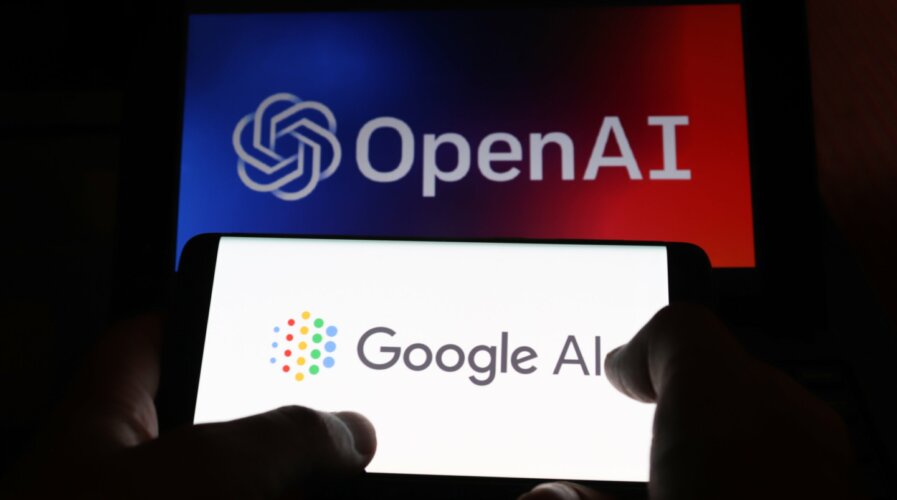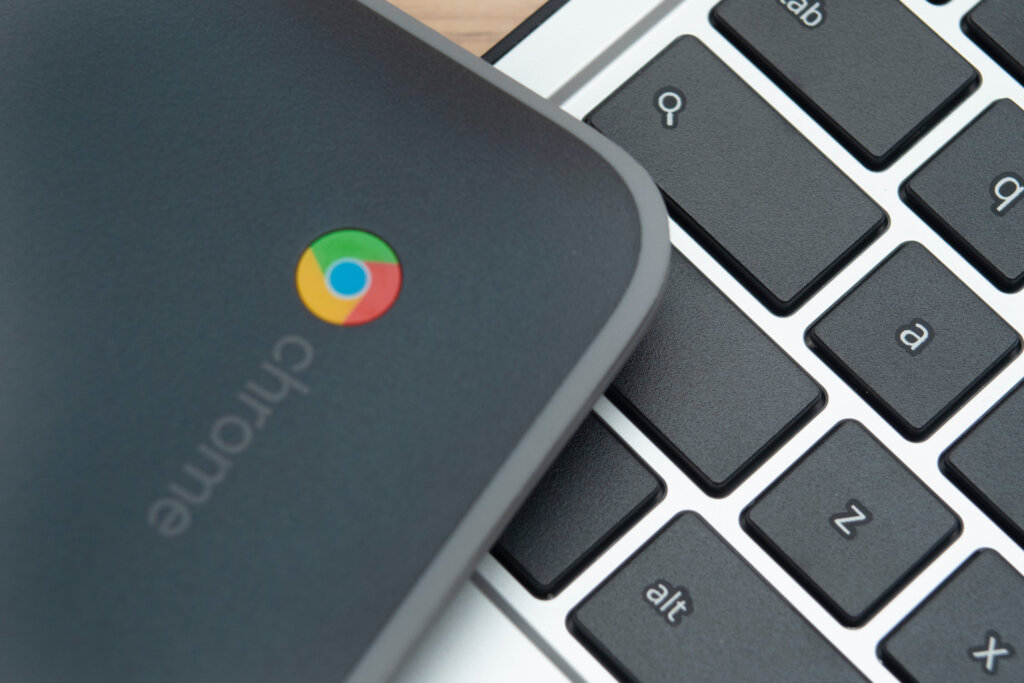
Beyond search: Google’s pioneering journey into advanced AI tools. (Source – Shutterstock)
How can artists, journalists, and techies harness creativity with Google AI tools?
|
Getting your Trinity Audio player ready... |
- Google’s AI portfolio grows with TextFX, Google Assistant updates, AI for Chromebooks, and ‘Genesis’.
- Google’s TextFX and ‘Genesis’ highlight the tech giant’s drive to infuse AI across creative and journalistic domains.
Google has been making waves with several announcements, particularly with regards allowing users to tap into the company’s advanced AI tools for creative purposes. One is the unveiling of TextFX, described as an “experiment to illustrate how generative language technologies can amplify the creativity and efficiency of artists and creators,” in collaboration with Lupe Fiasco.
TextFX, a product of Google Labs, is furnished with 10 distinct tools, and it runs on the prowess of the PaLM 2 large language model through the PALM API. Designed to bolster the inventive processes of rappers, writers, and lyricists, it’s certainly making a mark.
But there’s more: Google has internally expressed plans to enhance Google Assistant with the newest LLM (large language model) tech. Part of their team is already working on this upgrade, initially focusing on the mobile platform, presumably the Assistant on Android devices. Recent discoveries indicate that Google Assistant for Android is experimenting with a generative AI function that quickly summarizes web pages when prompted with “summarize this.”
Now, riding the wave of its progress in generative AI tools, Google seems poised to unveil an AI-centric writing and editing function for Chromebooks.
What can AI tools from Google do?
Google isn’t a novice in integrating AI to augment writing. In the current landscape, users can avail of features such as “Write for me” and “Help me write” within Gmail and Google Docs. Not to be left behind, the consumer-centric Google Messages has incorporated a “Magic Compose” feature, which suggests rewrites or drafts replies based on contextual cues.
The I/O conference this year shone a spotlight on AI, and when paired with subsequent revelations like Project IDX, it’s evident that Google is committed to harnessing generative AI across as many platforms as possible.
As reported by 9to5Google, ChromeOS could be next for AI enhancements. There were earlier whispers about Google’s attempts to weave the Bard chatbot into Chromebooks following its introduction on the web. This ambition seems to have taken a backseat, at least in the code accessible to the public.
However, Google hasn’t been idle. The company is currently engrossed in a project intriguingly christened with a plethora of codenames, the foremost among them being “Orca,” “Mako,” and “Manta.” The enigmatic nature of this endeavor has naturally kindled the curiosity of many.

ChromeOS could be next for AI enhancements. (Source – Shutterstock)
Decoding Google’s mysterious AI project
9to5Google’s findings suggest that “Orca” might be integrated into the ChromeOS right-click menu, specifically during text editing. Engaging Orca would launch the “Mako” interface in a convenient pop-up bubble.
The underlying code reveals Mako’s triad of functionalities: soliciting AI-guided rewrites for specific passages, proposing a set of preset text prompts (interpreted as AI-mediated stylistic recommendations), and smoothly embedding the modified text into the user’s original draft.
Interestingly, this AI-powered revision process doesn’t transpire directly on the Chromebook. Instead, the “Manta” conduit relays the user’s original content to Google’s servers, which then dispatch the AI-enhanced version back to the user. As with Google’s other forays, like Magic Compose, users are mandated to provide explicit consent before their content is shared.
While there’s excitement about this upcoming ChromeOS feature, it’s worth noting that the available code doesn’t explicitly hint at generative AI’s role. The only hint leading to the functions of Orca, Mako, and Manta is a cryptic reference to “Copy Suggestions.” While initially misleading, this likely alludes to “copyediting” or content formulation.
Given Google’s unwavering focus on AI, it’s a safe bet that ChromeOS is on the cusp of rolling out AI-driven writing suggestions and enhancements.
This AI tool’s charm lies in its direct integration with ChromeOS, positioning it within easy reach across many apps. Whether it’s penning a Google Message, crafting a social media update, or engaging in a Discord chat, this AI-enhanced feature is just a click away.
Regarding its debut, there are indications that the AI tool for Chromebooks might make its grand entrance with the ChromeOS version 118 update, slated for a mid-October release. However, refining such sophisticated tools is no small feat, and it’s conceivable that the rollout might be deferred by a few months.
Genesis: Google’s gift to journalists in the AI era
In a separate yet related vein, Google’s AI writing tool domain aspirations aren’t restricted to Chromebooks. The company has recently dropped hints about the ‘Genesis’ AI tool, tailor-made for journalists to pen news articles.
The New York Times has spotlighted Google’s endeavors on the Genesis AI tool, which can distill the essence of current events and transform them into news pieces.
Prominent newspapers such as the New York Times, Wall Street Journal, and Washington Post have had a sneak peek into this tool, which Google touts as a journalist’s digital aide, streamlining their daily tasks.
It’s within the realms of possibility for an LLM to be custom-molded based on a news outlet’s vast archives. In a parallel development, OpenAI has recently joined hands with the Associated Press, aiming to uncover the myriad potentials of generative AI in the news domain.
Given the prevailing trends, it seems likely that tech giants like Google might pivot towards licensing content from reputable news agencies for AI training—a move many in the publishing sphere are championing. This could be an organic extension of their existing licensing collaborations.
To provide clarity on these developments, Google issued an articulate statement: “We’re collaborating with news publishers, primarily smaller ones, in the nascent stages to potentially introduce AI tools aiding journalists. For example, AI can suggest headlines or diverse writing styles. Our objective is to offer journalists the option of leveraging these budding technologies to enhance their efficiency, mirroring the assistive tools we’ve introduced in Gmail and Google Docs. It’s imperative to note these tools aren’t meant to substitute the invaluable role of journalists in content creation, verification, and reporting.”
READ MORE
- Safer Automation: How Sophic and Firmus Succeeded in Malaysia with MDEC’s Support
- Privilege granted, not gained: Intelligent authorization for enhanced infrastructure productivity
- Low-Code produces the Proof-of-Possibilities
- New Wearables Enable Staff to Work Faster and Safer
- Experts weigh in on Oracle’s departure from adland


